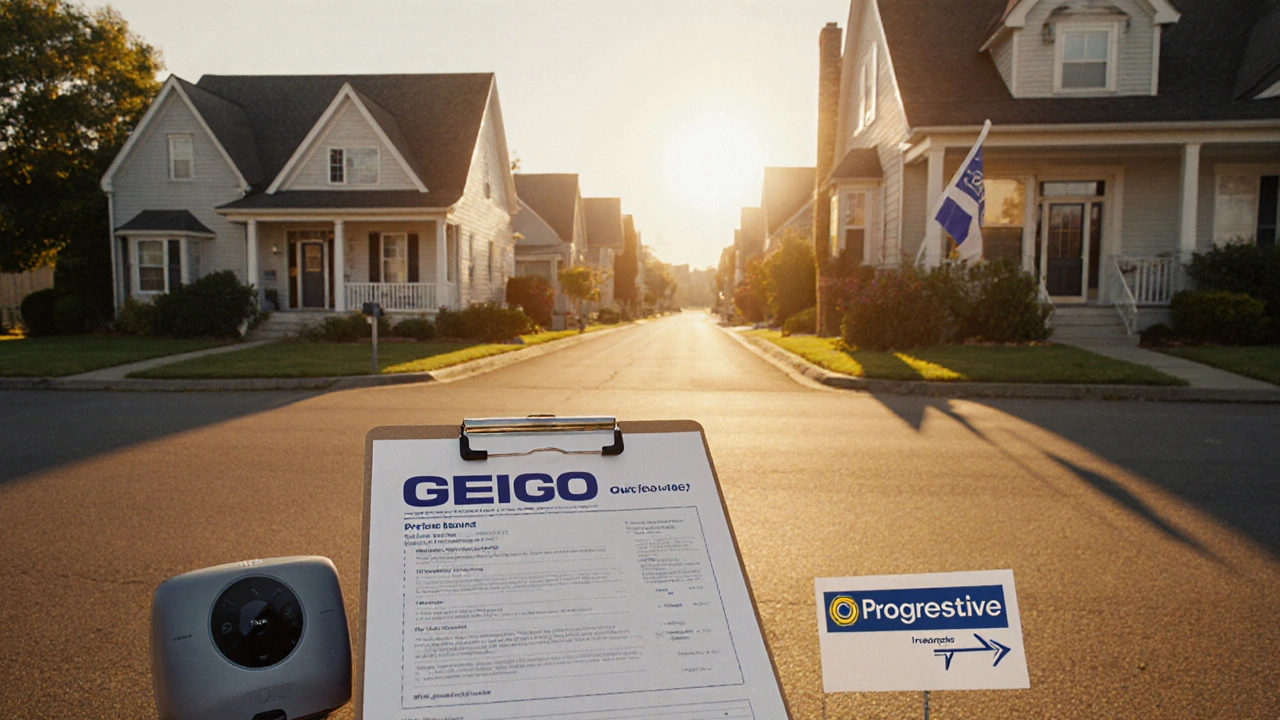Compare Geico vs Progressive: Which Auto Insurance Fits You?
When looking at compare Geico Progressive, a side‑by‑side analysis of two major US auto‑insurance carriers, focusing on rates, coverage, discounts and claim experience. Also known as Geico vs Progressive, it helps drivers cut through marketing hype and pick a policy that matches their budget and risk profile. This comparison isn’t just about who’s cheaper; it’s about how each company structures Auto Insurance, mandatory coverage that protects you and others from vehicle‑related losses, the breadth of optional add‑ons, and the real‑world handling of claims. Insurance Discounts, price reductions for safe driving, bundling, or affiliations play a huge role, and both Geico and Progressive have unique discount stacks. In practice, compare Geico Progressive encompasses three core triples: (1) the two insurers offer distinct pricing models, (2) coverage options differ in limits and deductibles, and (3) claim satisfaction hinges on digital tools versus local agent networks. Understanding these links lets you predict which policy will keep your premium low while delivering the protection you need.
Key Factors That Shape Your Decision
Rate calculators are the first stop for most shoppers, but the headline number often hides fees, surcharges, and the impact of your credit score. Geico typically promotes ultra‑low base rates and a streamlined online quote engine, whereas Progressive leans on its Name Your Price tool that matches you with a range of offers based on what you’re willing to pay. Beyond the headline, look at coverage limits: liability, personal injury protection, uninsured motorist, and comprehensive coverage can vary dramatically. Geico’s standard packages tend to bundle these at modest price points, while Progressive often separates them, giving you more granular control—but also more decisions. Deductibles follow the same pattern; a higher deductible can shave off premium dollars, but you’ll feel the pain if you file a claim. Another differentiator is the claim process: Geico touts a fully digital, 24/7 claims portal with quick payouts, whereas Progressive balances digital tools with a network of local adjusters, which some drivers prefer for complex repairs. Finally, look at discount eligibility. Geico rewards safe driving records, multi‑car policies, and military service, while Progressive focuses on usage‑based discounts through its Snapshot program, bundling incentives, and loyalty perks for long‑term customers. Matching these factors to your lifestyle—whether you’re a daily commuter, occasional driver, or rideshare participant—creates a tailored picture of which insurer aligns best with your financial goals.
Beyond the numbers, reputation matters. Studies from independent rating agencies consistently rank both Geico and Progressive in the upper‑midrange for customer satisfaction, but the nuances differ: Geico often scores higher for price transparency, while Progressive shines in claim resolution speed for certain claim types. If you value a mobile‑first experience, Geico’s app‑centric approach may feel more natural; if you like detailed policy explanations and a personal touch, Progressive’s blend of digital and human support could win you over. The bottom line is that a thorough compare Geico Progressive analysis should weigh pricing, coverage depth, discount structures, claim handling, and overall brand trust. Below you’ll find articles that break each of these elements down, offer calculators, and give real‑world tips to help you decide which policy will protect your wallet and your vehicle the best.

Compare Geico and Progressive home insurance premiums, discounts, and coverage options to see which offers the lower price in 2025.
Read More